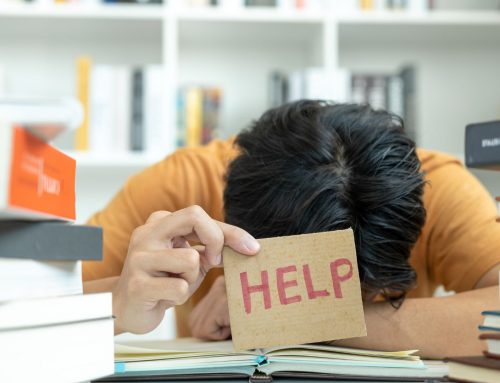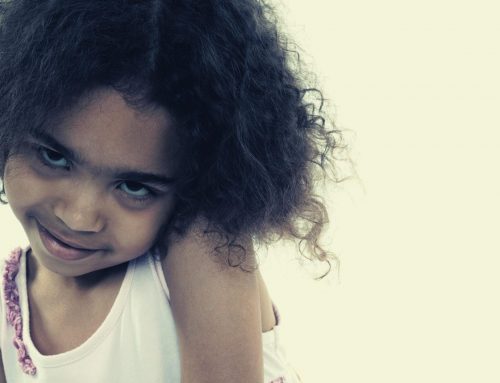The following information is shared from the YoungMinds website
Parenting isn’t always easy. Although it’s often amazing and rewarding to watch your children grow, and to help them learn to be independent, it is also really hard work. If you think your child is unhappy or if you are worried about their behaviour, it’s easy to be hard on yourself and think you aren’t doing a good job. Young Minds offers tips for parents who are worried about their child, or their own parenting skills. This article gives ideas about how to care for your child, care for yourself and know when to request help.
All children and young people are different and react to life in different ways. At some stages, particularly pre-school and teenage years, children can find it hard to control emotions. This is a normal part of their development as they learn to cope with life and realise they can’t have everything their own way.
Children also go through stages, as their brains develop and they try out different emotions and ways of reacting to the world. It’s normal for younger children to have fears (for example, of ghosts or monsters or dogs), as they become aware there are dangers in the wider world around them and they learn to distinguish between reality and fiction. Many children develop patterns of behaviour to comfort themselves if they feel anxious, such as thumb sucking or wanting to do the same things at the same time every day.
As they get towards puberty, children can become more defiant as they start to be independent and separate psychologically from parents and carers. And when the teen years begin, many young people become moody, angry or tearful and battles with parents can become a daily occurrence.
Personality plays a part too – some children are naturally more anxious than others, some express themselves physically or are very emotional while others are more reserved.
But if your child’s behaviour has changed recently, or you have started worrying about it and are not sure if what they are going through is normal or not, it’s worth thinking about the following:
- Is the behaviour out of character for your child, or does it fit in with their general way of dealing with things?
- Has the change been very sudden or have things been changing for a while?
- Is there anything obvious that might have upset or unsettled them? For example, moving house or school, divorce and separation bereavement, friendship problems, illness
- Is the behaviour having a negative effect on their daily life, for example, stopping them attending school or getting their schoolwork done; affecting friendships or family relationships; getting in the way of hobbies or activities; affecting their eating or sleeping?
- Is anyone else worried about their behaviour? eg other family members, teachers, friends
- Has your child said they think there is a problem or that they are worried?
If your concerns about your child’s emotions, behaviour, relationships or engaging in schoolwork remain ongoing, consider whether they may benefit from more specialist assessment or support. Click on our Home Page for a list of concerns and difficulties that we can help with.
In the meantime, the following strategies may help to manage less severe difficulties:
You and your child
- Make sure they know you love them and are proud of them. Even when things are busy or stressful, and it feels like you are in survival mode, a word or a hug can reassure them a huge amount. Praise them for what they do well, and encourage them to try new things
- Be honest about your feelings – you don’t have to be perfect. We all get things wrong and shout or say unkind things from time to time. If this happens, say sorry to your child afterwards and explain why it happened, They will learn from you that it’s OK to make mistakes and that it doesn’t make you a bad person
- Be clear about what is and isn’t acceptable – and tell them why. Children need to know what is OK and what isn’t, and what will happen if they cross the line. Follow through on what you say as otherwise they may get confused or stop respecting the boundaries
- Own your own role – you are the parent, so don’t be afraid to take tough decisions. If your child sees you are scared of their reaction and always give in to them, it can make them feel very powerful, which can be frightening. Children need to know that you are there to keep them safe.
Helping your child
- Worrying or difficult behaviour might be short-lived, so give it some time. All children go through stages of feeling anxious or angry and they can show this in lots of ways, for example, tantrums, crying, sleeping problems or fighting with friends or siblings. They might be adapting to a change in the family or in their school life, or just trying out new emotions, and will generally grow out of worrying behaviour on their own or with family support
- Talk to your child: Even young children can understand about feelings and behaviour if you give them a chance to talk about it. Take it gently and give them examples of what you mean, for example, ‘When you said you hated Molly, you looked really angry. What was making you so cross?’, or ‘When you can’t get to sleep, is there anything in your mind making you worried?’ The worry box is an effective tool for this particular issue. With older children, they might not want to talk at first. Let them know you are concerned about them, and are there if they need you. Sending an email or a text can work better if this is the way your child likes to communicate
- Ask your child what they think would help – they often have good ideas about solving their own problems
- If you can, talk to your child’s other parent about your worries, when the child is not around. They might have a different take on what’s going on. Try and sort out how to deal with the behaviour together so you are using the same approach, and can back each other up. Children are quick to spot if parents disagree, and can try and use this to get their own way
- More advice on when to think about getting professional help , and what to do, if you are concerned about your child’s behaviour.
Looking after yourself
- If your child is having problems, don’t be too hard on yourself or blame yourself. Although it can be upsetting and worrying if your child is having a bad time, and it makes your relationship with them feel more stressful, you are not a bad parent. Children often take it out on those closest to them, so you might be feeling the effect of their very powerful emotions
- If you had a difficult time growing up yourself, or have had emotional problems or mental health problems, it can be very worrying to think that the same thing might happen to your child. But the love and care you show them and the fact that you are trying to help will protect against this. Getting help for them and perhaps for yourself too can give them the best chance of feeling better
- If things are getting you down, it’s important to recognise this. Talk to someone you trust and see what they think. Many people go on struggling with very difficult situations because they feel they should be able to cope, and don’t deserve any help
- Friends and family can often help – don’t be afraid to ask them to have your child for a bit if you need some time out to sort out your own stuff. You can repay them when things get better for you!
- It’s easy to say take some time for yourself but in reality this may not feel possible. You might be too busy, exhausted or hard up for exercise or hobbies. But even a night in with a friend, a DVD box set or your favourite dinner can help
- Go to your GP if things are really getting on top of you. Asking for some support from your doctor or a referral to a counselling service is a sign of strength. You can’t help your child if you are not being supported yourself. Some people worry their parenting will be judged and their children will be taken away if they admit they are struggling to cope. This should only happen if a child is being abused or neglected and the role of professionals is to support you to look after your child as well as you can.
If you remain concerned that your child may need therapy, you are welcome to contact KindleKids for a free, no obligation initial telephone consultation to discuss your concerns and get advice regarding the best way to address them. Alternatively, if you want some practical advice to support children with their emotional regulation, managing anxiety and anger, building confidence, social skills and resilience, click here to have a look at our 8 session online POWER course, which has a wealth of information on supporting your children to manage life’s challenges and be the best ‘me’ that they can be.





